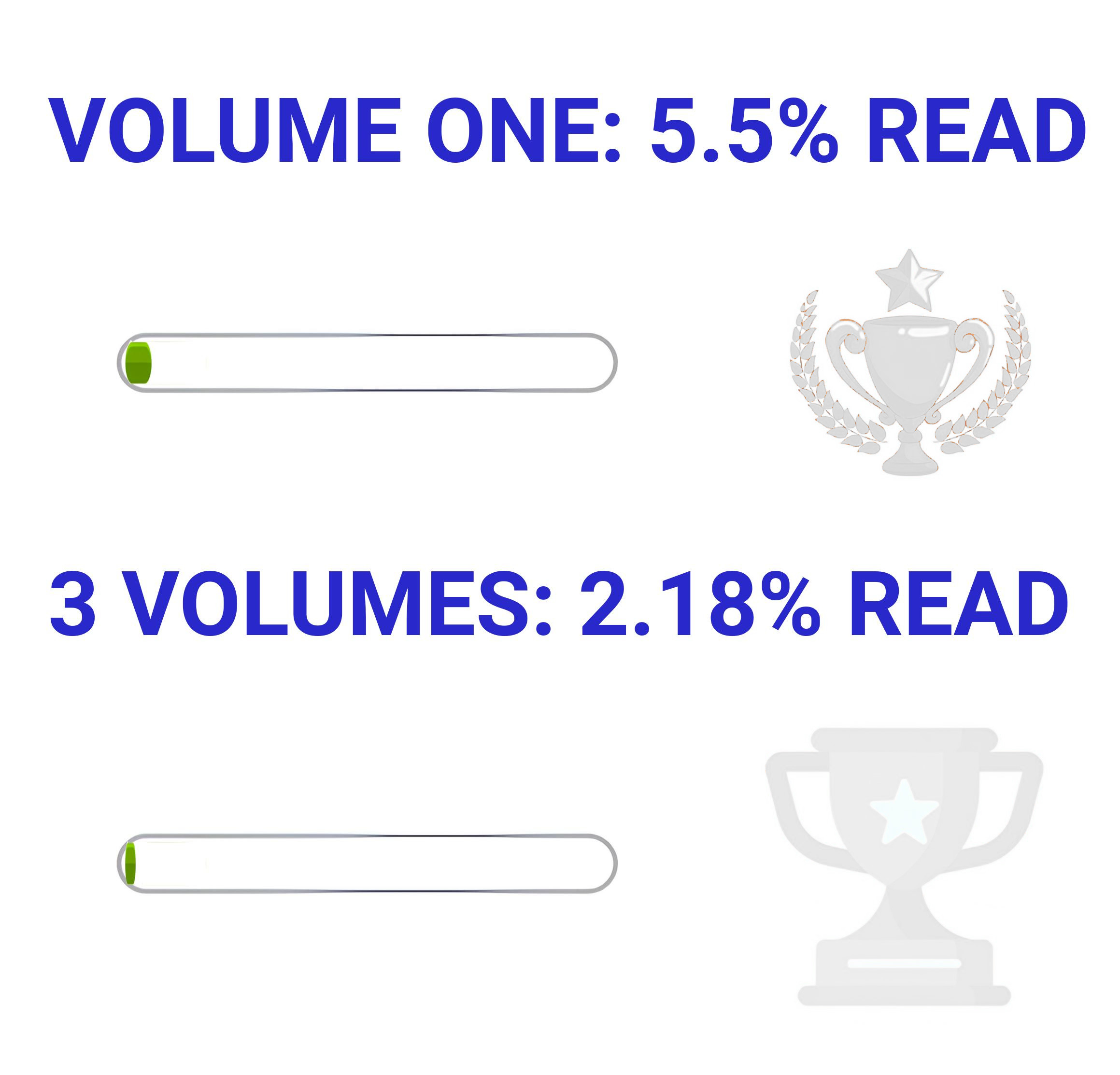Welcome to baby Marxist rehabilitation camp.
We are reading Volumes 1, 2, and 3 in one year. (Volume IV, often published under the title Theories of Surplus Value, will not be included in this particular reading club, but comrades are encouraged to do other solo and collaborative reading.) This bookclub will repeat yearly until communism is achieved.
The three volumes in a year works out to about 6½ pages a day for a year, 46⅔ pages a week.
I'll post the readings at the start of each week and @mention anybody interested. Let me know if you want to be added or removed.
We currently have 58 members!!! I expect a certain drop-off rate, but I'll be thrilled if a dozen or couple dozen read it.
If you've made it this far, you've already read ¹⁄₁₈ of Volume I. The first three weeks are the hardest, after that it'll be quite easy, and only requires 20 minutes a day (endurance is key).
Just joining us? It'll take you about 2-3 hours to catch up to where the group is. You can do that on one long bus ride.
Archives: Week 1
Week 2, Jan 8-14, we are reading Volume 1, Chapter 2 'The Process of Exchange', PLUS Volume 1, Chapter 3, Section 1 'The Measure of Values' PLUS Volume 1, Chapter 3, Section 2 'The Means of Circulation'
In other words, aim to get up to the heading '3. Money' by Jan 14
Discuss the week's reading in the comments.
Use any translation/edition you like. Marxists.org has the Moore and Aveling translation in various file formats including epub and PDF: https://www.marxists.org/archive/marx/works/1867-c1/
Ben Fowkes translation, PDF: http://libgen.is/book/index.php?md5=9C4A100BD61BB2DB9BE26773E4DBC5D
AernaLingus says: I noticed that the linked copy of the Fowkes translation doesn't have bookmarks, so I took the liberty of adding them myself. You can either download my version with the bookmarks added, or if you're a bit paranoid (can't blame ya) and don't mind some light command line work you can use the same simple script that I did with my formatted plaintext bookmarks to take the PDF from libgen and add the bookmarks yourself.
Resources
(These are not expected reading, these are here to help you if you so choose)
-
Harvey's guide to reading it: https://www.davidharvey.org/media/Intro_A_Companion_to_Marxs_Capital.pdf
-
A University of Warwick guide to reading it: https://warwick.ac.uk/fac/arts/english/currentstudents/postgraduate/masters/modules/worldlitworldsystems/hotr.marxs_capital.untilp72.pdf
-
Reading Capital with Comrades: A Liberation School podcast series - https://www.liberationschool.org/reading-capital-with-comrades-podcast/

I’m typing this while I wait on some takeout, but I can give some quick thoughts.
First what is Utopianism to Marx (and Engels)? It refers to solutions that are not supported by the material conditions currently in place. Hunger cannot be solved by decree alone, but only by concrete changes in the material basis e.g. establishing physical infrastructure and social systems for delivering food to each person.
Secondly why does Marx consider labor money to be utopian? Because commodity production does not just produce use values, it produces (and depends on) social relations. Value and money are each forms which express social relations inherent to commodity production. A society based on the exchange of privately products will necessarily produce money as we saw in chapter one. This cannot change without materially altering the nature of production away from commodity production.
Money exists because it represents abstract labor. If you ban gold as money, something else will have to be chosen as money, because exchange depends on there being some way of expressing abstract labor, which is fundamentally different from concrete labor. In commodity production, labor is not directly social (“directly associated”), it is only realized as social through exchange, and becomes abstract in that process.
Marx wasn’t opposed to alternative money in transitional socialist societies, as mentioned in the Gotha Critique, but that is because in that situation private property has been abolished and it is therefore possible for labor to be immediately social labor.
What kind of takeout?
Fresh fried noodles from a Chinese place!
Utopianism is a theory of non-revolutionary socialism where it just happens on its own or through electoralism. Utopian socialist theorist all died out or gave up but it is still alive and well amongst politically/class illiterate "progressives." Most of Marx work he was trying to show people that good vibes weren't going to make socialism happen.